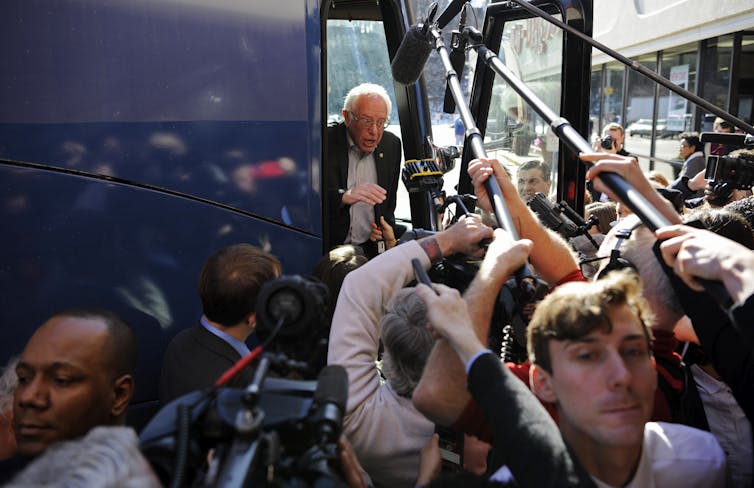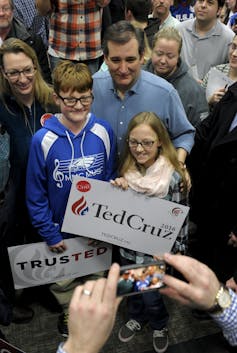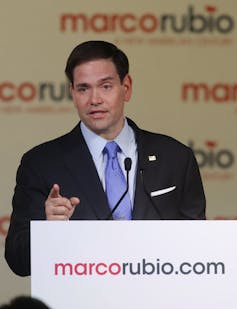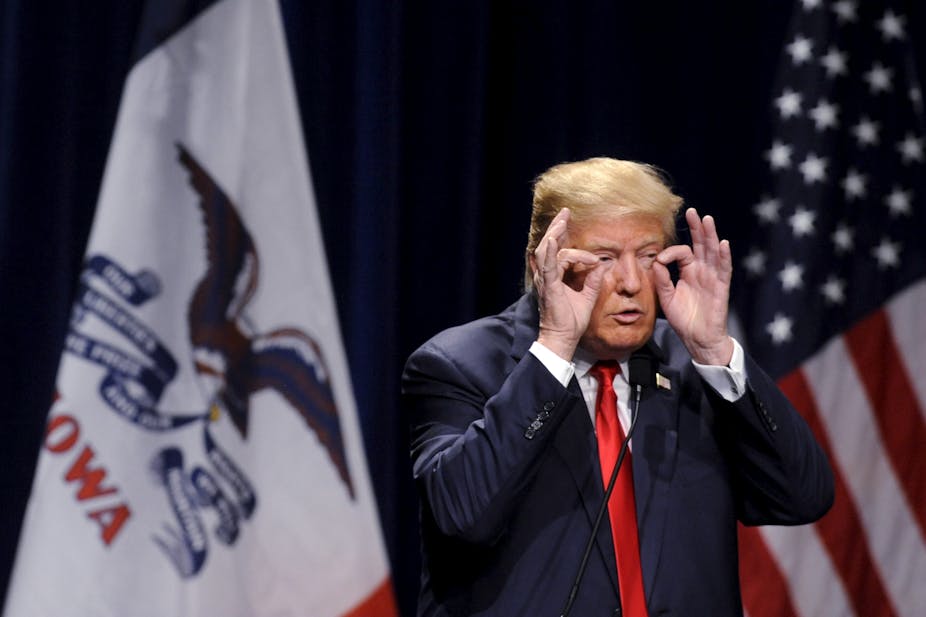The first US state to vote for the parties’ presidential nominees has spoken, and the results have shaken up an already chaotic race.
The Iowa caucuses delivered a blow to Republican frontrunner Donald Trump, who came in second behind firebrand conservative senator Ted Cruz. Florida senator Marco Rubio has shaken up that race, though, by finishing a strong third. Meanwhile, on the Democratic side, establishment favourite Hillary Clinton found herself less than 1% ahead of insurgent Vermont Senator Bernie Sanders.
For politicians, pundits and supporters alike, the Iowa caucuses are a something of a Rorsharch test; everyone sees something slightly different, or at least pretends to. For a variety of reasons – wildly variable turnout, the sheer number of candidates, the proportion of voters undecided – Iowa has traditionally been a very difficult state to poll, and because the caucus process is so complex and strange, the results are not necessarily as clear cut as they seem. But there are trends and historical precedents we can look to for guidance.
Tied up?
The Democratic result is arguably a major victory for Bernie Sanders. By managing to hold political titan Hillary Clinton to a near-tie, he can use this to help gather momentum for New Hampshire on February 9.
It is possible he could win there, but not seal the nomination. That could, though, damage Clinton. There is precedent for this: in 1972, Ed Muskie won in both Iowa and New Hampshire but lost the nomination to exuberant leftist George McGovern, who unexpectedly came second in both primaries but didn’t actually win a primary until Wisconsin voted three months later. McGovern then lost the general election in a catastrophic landslide.

But in 1972, the Democrats were in disarray, having been out of power for four years, and a plethora of candidates were running; now there are two, both running to follow a successful two-term presidency. And while 1972’s top candidates had broadly similar resources, Clinton still has a huge advantage in terms of money and endorsements.
Sanders’s future beyond the early states is the big unknown. He has a slight local advantage in New Hampshire and Vermont – these are both small and very white states with long traditions of leftist progressivism. It remains to be seen whether he can carry his appeal in places with more varied demographics.
But regardless of whether he can win or not, the pundits have an interest in talking him up as if he can, since a two-horse race is much more ratings-friendly then the virtual Clinton coronation some were predicting just months ago.
Three-way brawl
Meanwhile, the closeness of the Republican race (and the fact that its delegates are awarded proportionally) mean that all three of the leading candidates can claim some kind of victory.

Cruz, Trump and Rubio are all busy presenting themselves as victors – Cruz on the basis that he actually won, Trump on the basis that he did well for a non-politician, and Rubio on the basis that he far exceeded expectations. These are all valid arguments, but also help illustrate the problems they face moving forwards.
Cruz won in part through his appeal to hardcore right-wingers and evangelicals, support bases he can’t rely on in every state – and certainly not in the general election. Trump’s second place finish, meanwhile, says a lot about how political perceptions can change in only a few months.
Until the late summer of 2015, few people thought Trump genuinely intended to run at all, so this result would have been shocking in the extreme. But because Trump has made an issue of the poll numbers, quoting the margin of his lead whenever possible, any result other than winning automatically makes him seem like a loser (a tag he’s been willing to apply to everybody else at the drop of a hat).
Cruz and Rubio both demonstrated to Trump that brand recognition and a bombastic media style are not necessarily enough to succeed, and having a good political organisation still matters. On that score, Trump is still much weaker than the other candidates in the upcoming states.

If momentum is the way we judge success, then Rubio had a very good night. That he enjoyed this sudden surge late in the day will give hope to the Republican establishment that both Trump and Cruz can be stopped.
If either of them gets the nomination (or even gets too close), more moderate Republican candidates standing in other contests could end up tarred with their extremism, making it harder for the party to win crucial seats in the House and Senate. And that’s just this year: the white-hot rhetoric about immigration, crime, Muslims and so on may already have poisoned the Republican brand for years to come.

